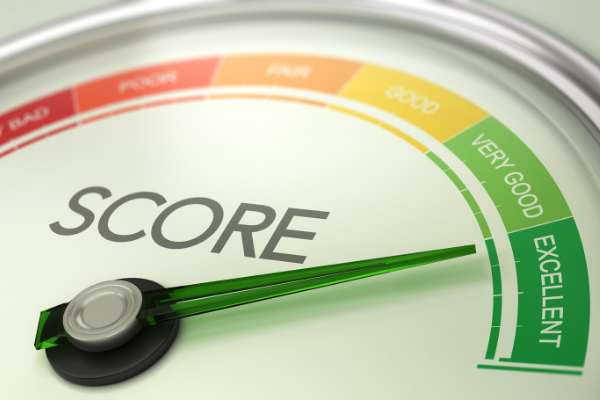Why Does My Credit Score Matter?
05/15/2020

Your credit score is made up of three numbers, serving as an indicator of your financial history, wellness and responsibility. These three little numbers can spell the difference between approval and rejection for a mortgage, a job, a rental unit and so much more.
We have outlined how your credit score is calculated, why it matters and steps you can take to improve your score.
How does my credit score affect my life?
Your credit score serves as a gauge for your financial wellness to anybody who is looking to get a better idea of how responsible you are with your financial commitments.
Here are just some ways your credit score can affect your day-to-day life:
- Loan eligibility. This is easily the most common use for your credit score. Lenders check your score to determine whether you will be eligible for a loan.
- The larger the loan, the stricter the requirements. A poor credit score can hold you back from buying a house, a car, or getting a personal loan.
- Interest rates on loans. Here too, your credit score plays a large role in your financial reality. A higher score can get you a lower interest rate on your loan, and a poor score can mean paying thousands of extra dollars in interest over the life of the loan.
- Employment. Some employers may look at the credit history of potential employees as part of the hiring process.
- Renting. Many landlords run credit checks on new tenants before signing a lease agreement. A poor credit score can prevent you from landing that dream apartment or it can prompt your landlord to demand you make a higher deposit before moving in.
- Insurance coverage. Most insurers will check your credit before agreeing to provide you with coverage. Consumer Reports writes that a lower score can mean paying hundreds of dollars more for auto coverage each year.
How is my credit score calculated?
There are three major credit bureaus in the U.S.: Experian, TransUnion and Equifax. Each one collects and shares information about your credit usage with potential lenders and financial institutions. Most lenders use this information along with the FICO scoring model to calculate your credit worthiness. Some lenders use the VantageScore model instead of FICO.
While there are several slight differences between the FICO and the VantageScore formulas, both scoring models look at the following factors when calculating your score:
- The age of your credit. How long have you had your oldest credit card? When was your first loan? An older credit history generally boosts your score.
- The timeliness of your bill payments. Are you paying all of your monthly bills on time? Chronic late payments, particularly loan and credit card payments, can drastically reduce your score.
- The ratio of your outstanding debt to available credit. The VantageScore formula views consumers with a lot of available credit as a liability, while the FICO formula considers this a point in your favor.
- The diversity of your credit. Lenders want to see that you have and have had several kinds of open credit. For example, you may be paying down an auto loan, a student loan and using three credit cards.
- The trajectory of your debt. Are you accumulating new debt each month, or slowly working toward paying down every dollar you owe?
- Your credit card usage. Financial experts recommend having several open credit cards to help boost your credit score, but this only works if you actually use the cards and pay off your bills each month. It doesn’t help much to have the cards sitting in your wallet.
How to improve your credit score
If you’re planning on taking out a large loan in the near future, applying for a new job, renting a new unit or you just want to improve your score, follow these steps:
- Pay your bills on time. If you have the income to cover it but find getting things paid on time to be a challenge, consider using floridacentral’s free online Bill Pay to set up automatic and recurring payments.
- Pay more than the minimum payment on your credit cards. By paying more than just the minimum payment on your credit cards, you can show you’re working on paying down your debt and help improve your score.
- Pay your credit card bills before they’re due. If you can, it’s best to pay your credit card bills early. This way, more of your money will go toward paying down your outstanding balance instead of interest.
- Find out if you have any outstanding medical bills. You may have an unpaid medical bill you’ve forgotten about. These can significantly drag down your credit score, so be sure to settle any outstanding medical bills as quickly as possible.
- Consider debt consolidation. If you’re paying interest on multiple outstanding debts each month, you may benefit from paying off your debt with a floridacentral Credit Card. Check out our offers for introductory interest-free credit cards. This way, you’ll only have one low-interest or interest-free payment to make each month.
It’s crucial that you make the effort to improve and maintain your credit score. It’s more than just a number; it will impact your financial wellness for years to come.
Don’t forget – You can pull a free credit report for all three credit bureaus by visiting www.annualcreditreport.com.
Sources

